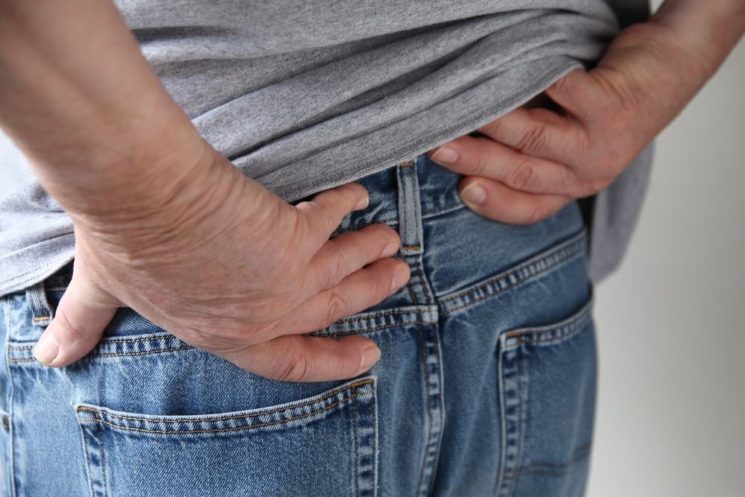By Christina Merryfield, Dietitian

Nutrition during pregnancy
- Eat a healthy, balanced and varied diet
It is important to eat a healthy, balanced and varied diet during pregnancy as this influences our health and the health of our baby.
There are also some vitamins and minerals that are especially important for the development of the baby.
- Pregnancy supplements
Folic acid is recommended before conception and up to 12 weeks of pregnancy to lower the risk of neural tube defects.
Vitamin D is particularly important for the growth and development of baby’s bones and helps to maintain the health of mum too. It is recommended that all adults in the UK should take a daily supplement containing 10μg (micrograms) of vitamin D during the autumn and winter months. This advice also applies to pregnant and breastfeeding women.
Vitamin A is important for good health and for the healthy development of baby, but large amounts can harm the unborn baby, causing malformations. You should not take cod liver oil or any supplements containing vitamin A(retinol).
From birth to 6 months
If possible, only breast milk is recommended for the first 26 weeks (six months) – this is also known as exclusive breastfeeding. Breastmilk not only provides all of the nutrients and fluid your baby needs but protects your baby from infections and diseases.
‘Complementary feeding’ or weaning refers to the process of introducing solid foods into a baby’s diet. This is needed because stores of essential nutrients, such as iron, decline from birth, and by six months they need to be replenished with food.
This should be started around six months when they are showing the signs of readiness. It is a gradual process of moving from a milk-only diet to family foods.
Toddler and Pre-School Children
Children need a variety of foods in order to get all of the nutrients they need:
- starchy foods such as potatoes, wholemeal bread and pasta, rice and gains or cereals. Try and include at least one food from this group with each meal.
- fruit & vegetables – aim for five portions (roughly the amount that will fit into the child’s palm a day).
- three servings of dairy a day (equivalent to three rounded tablespoons).
- protein foods around two-three times a day.
Children
Eating and lifestyle habits are established early in life. Children are likely to adopt the same eating patterns as their parents, therefore it is important that the whole family adopts a healthy lifestyle.
- Help your child to maintain a healthy weight
To help your child maintain a healthy weight try to encourage them to:
- eat a healthy, varied diet
- get plenty of physical activity. Children should be active for at least 60 minutes a day
- limit the amount of high fat and calorie foods, drinks and snacks.
- Diet and dental health
The risk of developing tooth decay increases as the amount and frequency of sugars intake rises.
Therefore it is important to try and limit the number of times a day that your child has sugary foods and drinks and, if possible, keep them to mealtimes.
There is no need to add salt to your child’s food.
3. Limit salt
Too much salt can impact your child’s future health and can lead to a preference for salty food. Salt is in many processed foods so always read the food label and choose lower salt versions.
There is no need to add salt to your child’s food.
Teenagers
Teenage years are such an important time for growth and development. A healthy, varied diet is essential to ensure that teenagers get enough energy and the right nutrients to help them concentrate at school and take part in sports and activities.
- Don’t skip breakfast
- Eat three meals a day – breakfast, lunch and dinner: Make sure each meal includes at least one portion of fruit or vegetables.
- Invest in bone health : Bone peaks normally occur between the ages of 18-25 years, when bones reach their maximum strength and density. At least 90% of peak bone mass is acquired by the end of teenage years.
- Limit the amount of fast food: These foods can be high in saturated fat, salt and/or sugars, which can be bad for our health when eaten in large amounts
- Snack sensibly: If hungry between meals, have a supply of healthier snack choices and drink plenty of water.
Women
- Iron intake
Adult women aged 19-50 years have higher requirements for iron compared to men and older women. This is because menstruation (a woman’s monthly period) can use up iron reserves. Over a quarter of women may have inadequate iron intakes, and low iron intake increases the risk of iron deficiency anaemia.
Iron is important for the development of red blood cells, which carry oxygen around the body. It also helps the immune system work and can help to reduce tiredness.
Iron can be found in red meat, fish and shellfish, beans, pulses, nuts and seeds, quinoa, wholemeal bread and dried fruit.
If you are vegetarian or vegan, you may need to be particularly careful to make sure you get enough iron in your diet as iron in plants is less readily absorbed.
Vitamin C can help your body to absorb iron from plant sources so try to combine these, for example adding broccoli into a bean casserole or red pepper to a tofu stir-fry.
- Calcium
Around one in 10 adult women have an inadequate intake of calcium. Calcium is particularly important for women because they have a higher risk of osteoporosis (fragile bones).
Calcium is found in:
- milk, cheese, yogurt, fromage frais
- some green leafy vegetables (such as kale and rocket)
- calcium-fortified dairy alternatives such as soy drinks and yogurts
- canned fish (where soft bones are eaten)
- breads (white, brown and wholegrain)
Men
- Five portions of fruit and veg
Only one in three men in the UK eat at least five portions (around 400g) of fruit and veg per day.
A good way to ensure you get your five a day is to have one portion with breakfast, two with lunch and two with dinner. You can add even more by choosing fruit or vegetables as snacks.
- Limit salt intake
The average intake of salt in adult men per day is 9.2g, higher than the maximum recommendation of 6g day, and women who have an average intake of 7.6g a day.
Eating too much salt can increase the risk of high blood pressure, which increases the risk of diseases such as heart and kidney disease.
Try to reduce the amount of salt in your diet and not add salt to your food. It is estimated that 75% of the salt we eat is added to the food we buy so always read the food label and choose lower salt versions.
Older People
- Eat a varied diet
As we age, it is common to become less interested in food.
Older people should try and eat a varied diet to ensure they get all the essential vitamins and minerals needed.
Our sense of taste and smell can change as we age, which can affect our appetite. Make foods as tempting and tasty as possible, such as varying colours and textures or adding spices and herbs like mint or paprika, so that eating stays enjoyable.
- Drink water
For a number of reasons, older people are at greater risk of dehydration.
Ageing produces a decrease in our thirst sensation, so it is easy for dehydration to go unnoticed. It is especially important to drink plenty of water and other non-alcoholic beverages.
Eight to ten drinks are recommended each day to replace fluid that is lost from the body. Water is a great choice but tea, coffee and fruit juice all count. More fluid may be needed if the weather is hot or humid or more physically activity is taken.



